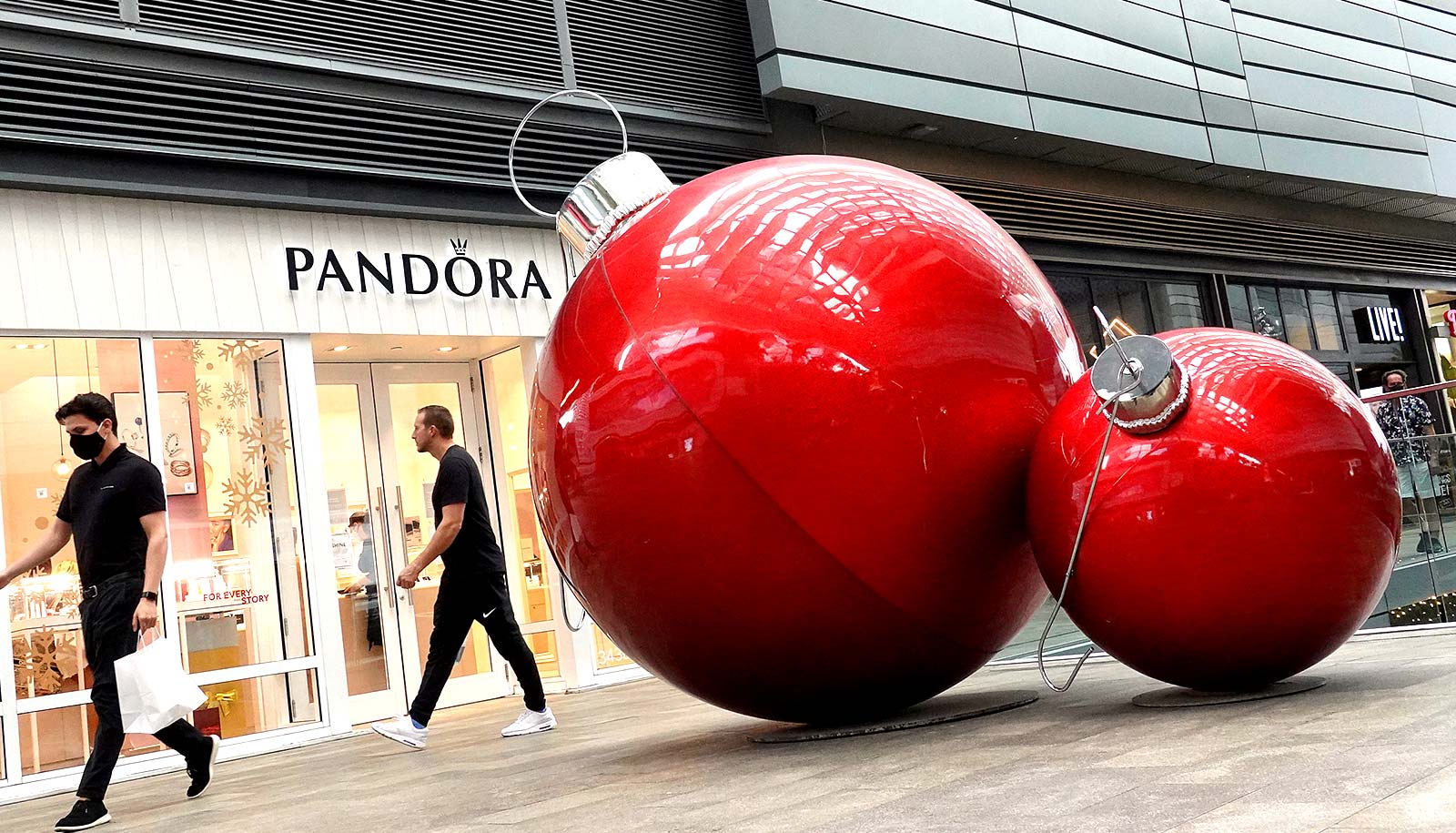Advance sales of seasonal items benefit consumers with reduced retail prices and not just retailers, according to new research.
It isn’t even Halloween, and some retailers already are putting out Christmas merchandise and promoting gift buying. Manufacturers and retailers often put out cards for Valentine’s Day, chocolate eggs for Easter, and a plethora of pumpkin-spiced treats ahead of Halloween and Thanksgiving many weeks ahead of the holidays.
“Advance selling results in a win-win-win outcome.”
The new study in the Journal of Marketing Research finds that advance selling can alleviate a common supply-chain issue—double marginalization—when manufacturers, wholesalers, and retailers apply their own set of profit margins that lead to higher prices for consumers.
“Advance selling results in a win-win-win outcome,” wrote Krista Li, associate professor of marketing and Weimer Faculty Fellow at the Kelley School and coauthor of the study.
“This benefit comes from offering retailers or consumers the option to buy either in the advanced period or in the spot period, which induces manufacturers, or in some cases retailers, to compete with their future selves, because consumers can buy now or wait to do so later,” she says.
“As a result, advance selling constrains manufacturers’ pricing power and reduces average retail prices.”
The spot period is when there is an immediate need to make a purchase, like candy right before Halloween or stocking stuffers at Christmas.
Sales of seasonal products such as holiday decorations, clothing, and summer or winter entertainment items and sports gear typically account for a fifth to one-third of all consumer purchases during the year.
“Manufacturers frequently advance sell seasonal products to consumers through retailers and therefore face unique challenges to coordinate channels effectively over time,” the researchers write.
“In particular, when a manufacturer advance sells with a low wholesale price, its retailer may stockpile the product and spot sell it during the consumption season.
“Our results suggest that retailers such as Walmart and Target should not advance sell seasonal products when they can stockpile products for spot selling.”
Their findings also suggest that manufacturers should advance sell their products when a retailer can’t stockpile seasonal items such as holiday decorations and the holding cost is low.
The benefits of advance selling are higher if the product is easier for producers to stockpile, the retailer cannot stockpile them, and the manufacturer sets dynamic wholesale prices, where the before-season price does not have to be the same as the in-season price.
The study presumes that consumers “are sophisticated and forward-looking in making purchase decisions,” but it doesn’t specifically consider those who stock up on candy corn or decorations at “after holiday” sales.
Li’s co-author is Xi Li, associate professor of marketing at the University of Hong Kong.
Source: Indiana University



